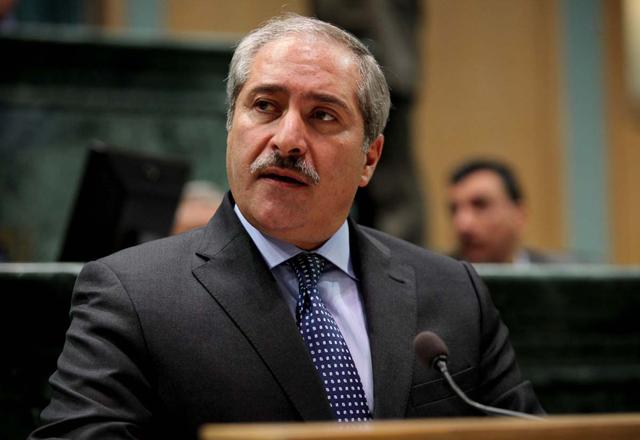You are here
Jordan defends participation in Yemen operation as legitimate, vital for national security
By Mohammad Ghazal , Raed Omari - Mar 26,2015 - Last updated at Mar 26,2015

SHARM EL SHEIKH/AMMAN — Jordan's participation in the Saudi Arabia-led coalition against the Houthis in Yemen came as a response to a call made by the legitimate president of Yemen, Foreign Minister and Deputy Prime Minister Nasser Judeh said Thursday.
Jordan, which joined a coalition of regional countries in the fight against the Houthi militants, supports Saudi Arabia, which started the strikes against the Houthi rebels late Wednesday, Judeh said at a meeting with reporters ahead of the Arab foreign ministers’ meeting to prepare for the 26th Arab League Summit slated for Saturday.
Meanwhile, local opinion leaders supported the move.
“Yemen’s President Abed Rabbo Mansour Hadi called for intervention… He is the legitimate leader of Yemen, therefore, our participation in the operation is legitimate as far as international law is concerned,” said Judeh.
Stressing that the security of the Gulf countries is an interest of the Kingdom, Judeh said Jordan’s involvement in the operation is meant to protect the stability and security of Yemen, where Houthi rebels are fighting to oust Yemen’s president.
Earlier on Thursday, the Jordan News Agency, Petra, quoted an unnamed official as confirming Jordan’s participation in the military operations in Yemen, adding that the campaign, dubbed “ Operation Storm of Resolve”, is aimed at supporting legitimacy in Yemen, and its security and stability, reiterating that the security of Saudi Arabia and Gulf countries is a strategic interest of Jordan.
Jordan supports legitimacy and the political process in Yemen, said the source, who declined to comment on whether the Kingdom would take part in a possible ground war.
Jordan’s participation in the Arab anti-Houthi coalition alongside other Arab states is primarily aimed at defending the Arab world’s national security, analysts said on Thursday.
In remarks to The Jordan Times, the interviewees argued that Jordan’s participation in the air strikes against the Iranian-backed Shiite Houthis is strategically centred around ending the Iranian interference in Yemen’s internal affairs.
Saleh Qallab, former media minister, said Jordan’s participation in the coalition is part of “pan-Arab obligations” towards safeguarding the Arab world’s national security from Tehran’s interference.
Qallab, now a senator and a columnist, explained that Jordan is strategically a key member in the Arab “moderate camp”, which also comprises Egypt, Saudi Arabia, the UAE, Kuwait and Morocco, adding: “This Arab alliance is determined to end Iranian interference in Arab affairs.”
Describing the Kingdom’s participation in the anti-Houthi axis as “lying at the heart of defending Jordan’s national security”, Qallab also said that Iran now has its militias in southern Syria on the border with Jordan, backed by Lebanon’s Hizbollah and Shiite Iraqi fighters.
Jawad Anani, former Royal Court chief and several-time minister, hailed Jordan’s participation in the military operation in Yemen, saying Egypt, Saudi Arabia and other Gulf states are key longtime allies of Jordan.
“In addition to being a return of favour to the Gulf states’ generous and endless support to Jordan, the Kingdom’s participation has to do with its strong cultural, historical, economic and strategic relations with Saudi Arabia and other Gulf states. Jordan’s national security is inseparable from the security of the Arab Gulf region,” Anani said.
Saudi Arabia was contributing 100 warplanes to the operation and more than 85 were provided by the UAE, Qatar, Bahrain, Kuwait, Jordan, Morocco and Sudan, according to Al Arabiya satellite channel.
Related Articles
There has been no change in registration of Yemeni asylum seekers with UNHCR Jordan over the past week after the Saudi Arabia-led coalition started its attacks against the Houthis.
Jordan's participation in the Saudi-Arabia led coalition against the Houthis in Yemen came as a response to a call made by the legitimate president of Yemen, Deputy Prime Minister and Minister of Foreign Affairs Nasser Judeh said Thursday.
The Saudi Arabia-led operation against the Houthi rebels in Yemen is crucial to protect the region's stability, Arab unity and the Arab identity of Yemen, Arab leaders agreed Saturday.

















